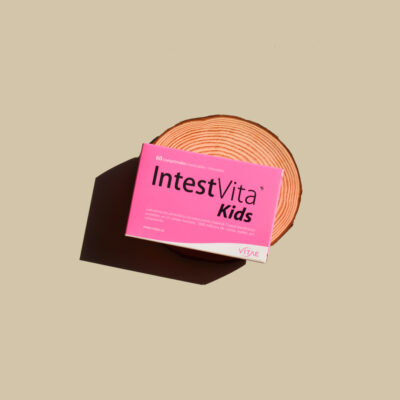Constipation in children is very common. A child who is constipated has infrequent bowel movements or very hard, dry stools. They tend to suffer from it at different periods of time: when cereals and solid foods are introduced into the baby’s diet, during potty training, and around the start of school. In the following article we tell you what childhood constipation is, its symptoms and treatment.
What is constipation in children
Childhood constipation consists of delay or difficulty in eliminating stool for a period of time, at least 1 month in infants and young children, and 2 months in older children. Constipation is responsible for up to 5% of children’s visits to the doctor.
There are certain guidelines that can help us know if children are suffering from constipation:
- For 2-3 days there are no bowel movements
- Hard or painful stools
- Large stools that can clog the toilet
- Drops of blood on the outside of the stool
Causes of constipation in children
Constipation in children can happen because stool moves very slowly in the digestive tract and thus becomes hard and dry. There are several factors that cause this constipation:
- Retention: the child may ignore the need to go to the toilet to defecate out of fear or not wanting to interrupt a game. There are children who, when they are away from home, feel uncomfortable going to another bathroom other than their own. Sometimes, there will be a painful evacuation, which will lead to the child not wanting to defecate, therefore, he will retain it and avoid going to the bathroom at all costs.
- Learning to go to the bathroom: it may happen that if you teach your child to go to the bathroom very early, he or she will not want to go and will hold the feces.
- Diet: if the child eats a diet low in vegetables and fruits rich in fiber or water, it can cause constipation. It usually happens when there is a change in liquid feeding and adding some solids.
- Changes in routine: any type of change in the child’s routine can affect intestinal function, it can be a trip, hot weather, stress… In addition, children are more likely to suffer from constipation just when they start school.
- Medication: There are some antidepressants or other medications that can cause constipation.
- Cow’s milk: Excessive dairy consumption or an allergy to cow’s milk can sometimes cause constipation.
- Family history: it is most likely that if a family member has suffered from constipation, it could also pass on to the child.
In the first weeks of life, some babies suffer from constipation, in 5% of cases. Some of the causes may be the following:
- Neurological alterations: Hirschprung ‘s disease , which is based on low innervation of the colon that reduces its motility, spinal cord lesions (malformations, tumors) or cerebral palsy.
- Anal pathologies: an anal fissure or bacterial perianal disease or malformations may appear.
- Medications: that have side effects such as constipation, such as iron, antacids, anticonvulsants, some treatments for ADHD, etc.
- Endocrine disorders: metabolism disorders, such as hypothyroidism, diabetes and cystic fibrosis, etc.
- Other diseases: lupus, Down syndrome, celiac disease, cow protein intolerance.
- They can also occur in disorders such as autism, Asperger’s, depression, anxiety, attention deficit and hyperactivity.
Symptoms of constipation in children
Constipation in babies
There are different signs that could indicate that a baby is suffering from constipation:
- Hard or pellet-shaped stools
- Stools that seem painful or difficult to pass, causing the baby to arch his back or cry, accompanied by hard, dry stools
- Infrequent or less frequent bowel movements than normal
It usually happens that newborns who are breastfed do not defecate for several days. Straining to defecate is not always a sign of constipation, since babies have weak abdominal muscles and often have to strain.
Constipation in children from 2 years of age
- Less than three bowel movements a week
- Hard, dry and difficult to pass stools
- Pain when evacuating the intestines
- Stomachache
- Traces of liquid or pasty stool in your child’s underwear, a sign that stool is stuck in the rectum
- Blood on the surface of hard stools
When to worry about a child who suffers from constipation?
There are some symptoms that may appear and be cause for concern:
- Weight loss or delayed growth
- Blood in the stool
- Fever, vomiting
- Abdominal distension
- Decreased appetite
- Absence of bowel movements during the first 24-48 hours after birth
Treatment for constipation in children: how to relieve it naturally?
You’re probably wondering what to do when a child has constipation. Below, we explain some changes that should be made to improve constipation in children.
One option could be to make a change in what the child eats and drinks, as this can help the stool become softer and easier to pass. Therefore, your child should eat foods high in fiber and drink plenty of water and other fluids if he or she eats more fiber.
On the other hand, there is also the option of trying to change the child’s behavior or patterns related to bowel movements, which may help treat constipation. That is, the child who no longer wears diapers should get used to using the bathroom after meals and thus establish a routine. Use a reward system when the child uses the toilet regularly. Take a break from diaper training until the constipation ends.
The most appropriate thing would be to adopt these measures and, if necessary, the use of products such as food supplements with probiotics , which can help in a timely manner, doing so under the supervision of our trusted healthcare professional.
At Vitae we care about your health and that is why we try to offer the best of us, providing valuable ideas for your daily life. We always recommend that any time you feel unwell or feel that certain symptoms are unusual, you go to your doctor. Our proposal in cases of childhood constipation is the following:
Vitae solution
IntestVita kids is a food supplement with an exclusive combination of three bacterial strains present in the human intestine ( Lactobacillus gasseri , Bifidobacterium bifidum and Bifidobacterium longum ), which helps to regenerate beneficial intestinal flora. Probiotics are recommended to help maintain healthy intestinal flora, improve digestion, help combat constipation and diarrhea, and strengthen the immune system .






